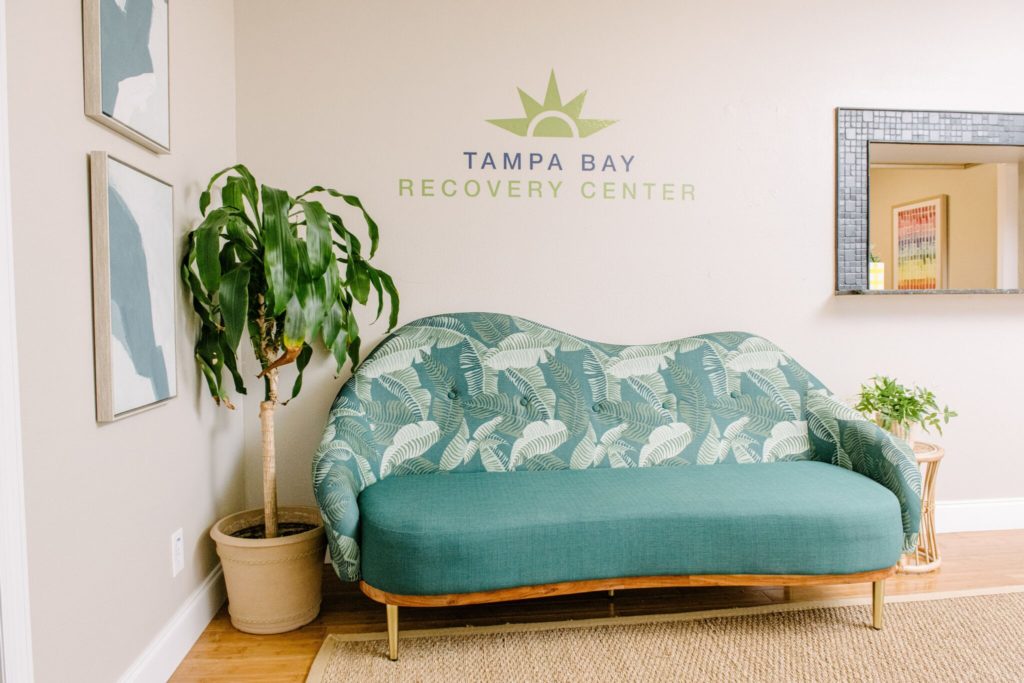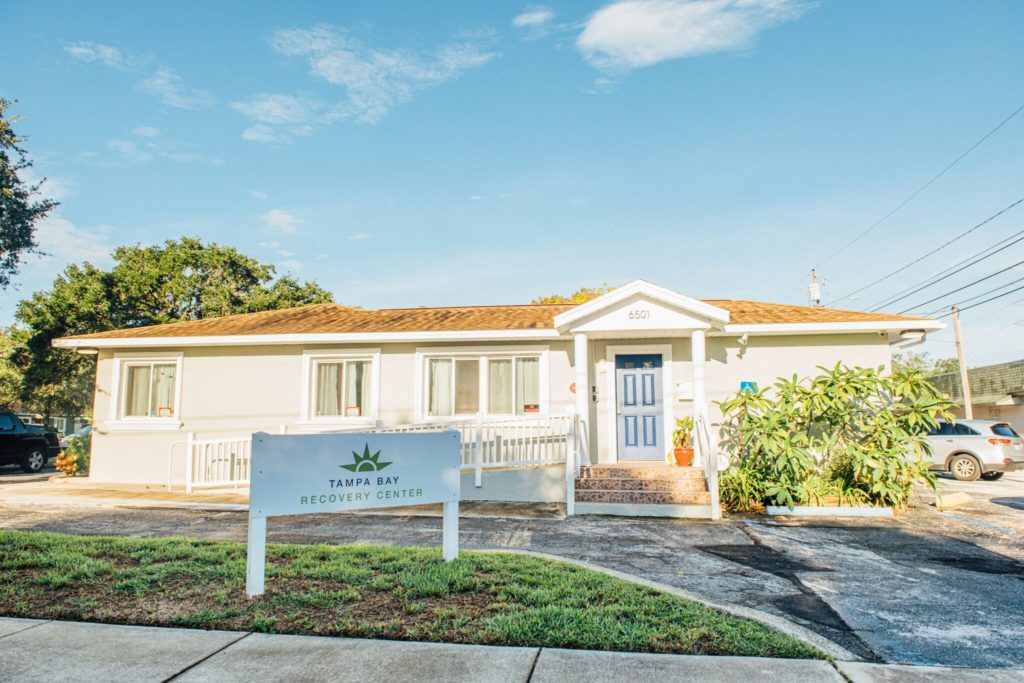Medically Reviewed

Medically reviewed by Erika Dalton, LMSW
Written by Tampa Bay Recovery staff
Updated on January 30, 2024
Medically Reviewed

Medically reviewed by Erika Dalton, LMSW
Written by Tampa Bay Recovery staff
Updated on January 30, 2024
Contents
Mental Health Treatment in Tampa Bay
It’s time to put your health first. Call us right now to learn how we can help you break the cycle of addiction for good and create a new life of possibility
Traumatic events can significantly alter a person’s mood and personality. Some people struggle to find any hope of healing from the impact of trauma. But there is hope for recovery from trauma. Our trauma and PTSD treatment in Tampa can help you or a loved one heal from the effects of traumatic experiences.
At Tampa Bay Recovery Center, we understand the negative impact that trauma can have on a person’s life. From poor health outcomes to co-occurring substance abuse, untreated trauma can leave a mark that is difficult to overcome.
However, with evidence-based therapies, holistic approaches, peer support, and trauma-informed care practices, our clients can overcome trauma to thrive in recovery.
What is PTSD?
Post-traumatic stress disorder (PTSD) is a mental health disorder that develops after traumatic events and experiences. According to the National Center for PTSD, about 6% of the US population will develop PTSD at some point in their lifetime. Furthermore, most people who go through a traumatic event will not develop PTSD.
Different types of traumatic events can lead to the development of post-traumatic stress disorder (PTSD) and other mental health disorders. The following are some of the most common types of traumatic events:
- Combat during military service
- Sexual assault and molestation
- Physical and domestic abuse
- Violence or near-death experiences
- Injuries resulting from accidents
- Witnessing violence or harm to others
- Natural disasters
- Living in an unsafe community
- Neglect or abandonment
- Severe illness
These types of events and others like them can lead a person to experience one of three types of trauma.
What Are the 3 Types of Trauma?
Trauma-related mental health disorders develop from three different types of trauma: acute, chronic, and complex.
- Acute trauma occurs following a single traumatic event. For instance, a car accident or being robbed at gunpoint would be an acute trauma.
- Chronic trauma refers to long-term traumatic experiences. Examples include childhood neglect, domestic abuse, bullying, and growing up in a war zone.
- Complex trauma involves multiple events that lead to unique symptoms of trauma. This type of trauma includes a string of acute traumas among a person living in a chronically traumatic environment.
The impact of traumatic events varies from person to person based on protective factors as well as risk factors. These are the variables that can help to predict whether a person will develop PTSD or not.
How Does PTSD Develop?
As mentioned above, not everyone who experiences trauma will develop PTSD. Two people can have the same traumatic experience, yet they respond differently. Oftentimes, this depends on the protective factors they have before the experience. Protective factors, or a lack of them, significantly impact a person’s response to traumatic events.
Protective factors that can impact trauma include the following:
- Safe and stable housing
- Healthy familial relationships
- Supportive friends, peers, and family members
- Feeling connected to a community (sense of belonging)
- Financial security
- Access to medical and mental health services
- Role models, mentors, and sponsors
- Healthy coping skills for everyday stressors
Essentially, when a person has protective factors, they can process trauma more effectively than those who do not. However, PTSD develops when a person has no way to cope with the impact of trauma. Over time, they remain stuck in their trauma and struggle to feel safe or secure in everyday situations. Usually, people who develop PTSD have a lack of protective factors and the presence of additional risk factors.
Risk factors, like pre-existing mental health or substance use disorder (SUD), can impact the weight of traumatic events and worsen these conditions. For example, a person with a drinking problem might drink more heavily following a traumatic event. Or, a traumatic event may trigger a manic cycle for a person with bipolar disorder. These examples can lead to further trauma and developing PTSD as a result.
Still, some traumatic events are so harrowing that people can develop PTSD even with protective factors. So, it’s important to recognize the signs and symptoms of PTSD to determine a need for treatment. Our PTSD treatment in Tampa can help when a person’s quality of life and health suffer because of a traumatic experience.

Recognizing the Need for PTSD Treatment
A person needs trauma and PTSD treatment when they have unresolved trauma and struggle with active symptoms. People who don’t have healthy coping skills could see their health worsen without getting help. In fact, according to the Substance Abuse and Mental Health Services Administration (SAMSHA), “Research has shown that traumatic experiences are associated with both behavioral health and chronic physical health conditions, especially those traumatic events that occur during childhood.”
Therefore, it is critical to understand the signs and symptoms of trauma and PTSD.
Signs and Symptoms of Trauma and PTSD
Some people show signs of trauma that don’t develop into post-traumatic stress disorder (PTSD). However, early interventions following a traumatic event could prevent the development of PTSD. Thus, it is best to get help as soon as possible.
The following are common signs and symptoms of trauma and PTSD:
- Intrusive thoughts and memories about the event, like flashbacks and nightmares
- Avoiding places, people, or things that remind the person of traumatic events
- Refusing to talk about the event or anything that could remind the person of the trauma
- Negative thoughts about oneself, others, or the world at large
- Trouble feeling safe and secure
- Difficulty trusting others
- Hypervigilance and feeling on edge
- Being easily startled
- Feeling overwhelmed and hopeless
- Irritability and agitation that could lead to angry outbursts
- Trouble concentrating and thinking clearly
- Insomnia
- Loss of interest in preferred activities
- Isolating from friends and family
- Apathy or feeling emotionally numb or empty
- Abusing drugs and alcohol to self-medicate trauma symptoms
- Self-destructive and reckless behaviors
Traumatic experiences can affect the way that a person responds to everyday life. Essentially, the experience leaves them feeling “stuck” in a state of worry or anticipation of a similar event occurring. This then leads to maladaptive ways of coping with everyday stressors and distorted thought patterns.
If you or a loved one display the above-mentioned behaviors, our trauma and PTSD treatment in Tampa can help.
Ready to Heal from PTSD? Let's get Started
Tampa Bay Recovery Center is a premier leader in the provision of addiction and mental health services. If you or someone you love is in need of professional care to address a mental health disorder, reach out to us right now at (813) 733-8774 to speak with an admissions specialist who can get you started on the road to recovery.
How is PTSD Treated?
Trauma and post-traumatic stress disorder (PTSD) treatment uses evidence-based therapies combined with holistic approaches to help clients build an individualized plan that works best for them. Sometimes, what works best for one person may not help another. This is because traumatic events impact each person differently.
At Tampa Bay Recovery, we offer several therapeutic modalities to treat trauma and PTSD. These modalities also help to treat a dual diagnosis of PTSD and addiction.
Therapeutic Modalities for Trauma and PTSD
There are several evidence-based trauma therapies available to treat PTSD. These therapies focus on the symptoms of trauma, which sometimes lead to other mental health disorders.
The following are effective ways to treat trauma and PTSD:
Cognitive-Behavioral Therapy (CBT)
Cognitive-behavioral therapy (CBT) is one of the most common types of evidence-based therapy. CBT treats a range of disorders and symptoms, including PTSD, depression, and anxiety. During CBT, clients work on challenging unhelpful beliefs about themselves and the world. By challenging these beliefs, clients can find healthier ways to react to the world around them.
Since many mental health disorders have similar and overlapping symptoms, CBT is the basis for several variant therapies, such as:
Dialectical Behavior Therapy (DBT)
Marsha Linehan developed dialectical behavior therapy (DBT) in the late 1970s based on similar principles as CBT. However, DBT is adapted for people who experience intense emotions. People with PTSD often struggle with emotional regulation, trust, and black-and-white thinking. DBT can help clients learn to accept things as they are and find the middle ground in relationships and emotional responses.
EMDR Therapy
Eye-movement desensitization and reprocessing (EMDR) therapy was developed specifically for PTSD and trauma. During EMDR therapy, a therapist talks to their client about traumatic events while engaging them in bilateral stimulation to help them relax. Bilateral stimulation is any type of stimulation that goes back and forth between both sides of the body.
Most therapists guide clients to follow their fingers from left to right with their eyes, hence the “eye movement” in EMDR. The idea of EMDR therapy is to help clients reduce the intensity of their reactions when they recall traumatic events.
Brainspotting
Brainspotting therapy is a new type of treatment developed by Dr. David Grand in 2003, stemming from his practice of EMDR therapy. During brainspotting therapy, therapists help clients find a brain spot. The brain spot refers to a place in the brain where traumatic events are stored that correlate to a particular visual point in a person’s gaze.
Holistic Treatment
Holistic treatment focuses on the whole person in recovery from trauma and PTSD. These approaches incorporate multiple aspects of health and well-being into a person’s treatment plan. While these approaches are not enough to treat PTSD and trauma on their own, they can greatly enhance a person’s current program and reduce symptoms like tension and racing thoughts.
Holistic approaches during trauma and PTSD treatment in Tampa include:
Regardless of what type of therapy a person chooses, all of our practices at Tampa Bay Recovery understand the principles of trauma-informed care. These principles help to shape our overall approach as well as our treatment environment and company culture.
Overcome PTSD with evidence-based, expert care.
What to Expect at Our PTSD Treatment Program in Tampa Bay
At our PTSD treatment program, clients can expect to process their trauma during talk therapy, process their emotions during group sessions, and manage additional symptoms via holistic approaches. By combining several ways of treating PTSD, our clients can expect individualized care to meet their needs. We offer help through our outpatient treatment programs, so clients can get treatment while still living at home.
Our programs for PTSD treatment in Tampa include the following:
- Partial Hospitalization Programs (PHP): During PHP programs, clients get comprehensive treatment seven hours a day for six days a week. Throughout the program, clients will get individual counseling, group sessions, peer support, experiential therapy, and psychoeducational programming.
- Intensive Outpatient Programs (IOP): IOP programs are the next step following PHP. Clients get less time in treatment than a PHP, however, they still attend nearly every day of the week. This allows flexibility for clients ready to transition to a post-treatment life.
- Outpatient Programs (OP): Following IOP, many clients continue with an outpatient program to continue therapy sessions. These sessions could include group and individual therapy. Most clients attend OP therapy once a week.
In addition, all of our clients—whether they have PTSD or not—can expect trauma-informed care practices. Trauma-informed care refers to treatment practices that ensure each client’s personal history and background are understood and respected throughout treatment.
What is Trauma-Informed Care?
Trauma-informed care shifts the focus of treatment programs from “What is wrong with you?” to “What happened to you?” Many mental health and substance abuse treatment centers have adopted trauma-informed care practices, which build a greater understanding of how disorders develop. Trauma-informed care practices recognize the importance of a person’s life experiences in shaping their current conditions.
According to the Centers for Disease Control and Prevention (CDC), trauma-informed care “requires constant attention, caring awareness, sensitivity, and possibly a cultural change at an organizational level.” Tampa Bay Recovery Center is proud to integrate the principles of trauma-informed care in our approach to the treatment of all types of disorders, including PTSD and other trauma-related mental health disorders.

How Long Does PTSD Treatment in Tampa Bay Last?
PSTD treatment can last a few months to years, depending on the person. At Tampa Bay Recovery Center, clients progress through each level of care, stepping down from a higher level of support to a lower one. While intensive programs, like PHP and IOP, can last a month or longer, aftercare can vary from person to person.
Throughout a person’s life, symptoms can flare up again following new stressors or life changes.
However, following PHP and IOP, clients will have a greater understanding of PTSD as well as the coping skills they need. Following up with aftercare can include outpatient therapy, psychiatry, or a peer support group.
Start PTSD Treatment in Tampa Bay Today
Trauma and post-traumatic stress disorder (PTSD) can negatively impact several areas of a person’s health and well-being. The person could push loved ones away, engage in self-destructive behaviors, or abuse substances when their symptoms are untreated. At Tampa Bay Recovery Center, we are here to help those with trauma and PTSD find healthy ways to cope with their symptoms.
There is hope for recovery from trauma and PTSD. Contact us today to begin treatment.
Our Philosophy
We believe that getting help for substance use disorders is about much more than just trying to get through another day of not drinking or using drugs. Our mission is to help people reclaim their lives by teaching them how to effectively deal with the stress, trauma, and anxiety that contribute to their addictions.
Meet Our Team
Our staff has over 60 years of combined experience in treating behavioral health disorders. Our compassionate and empathetic approach has helped hundreds.







